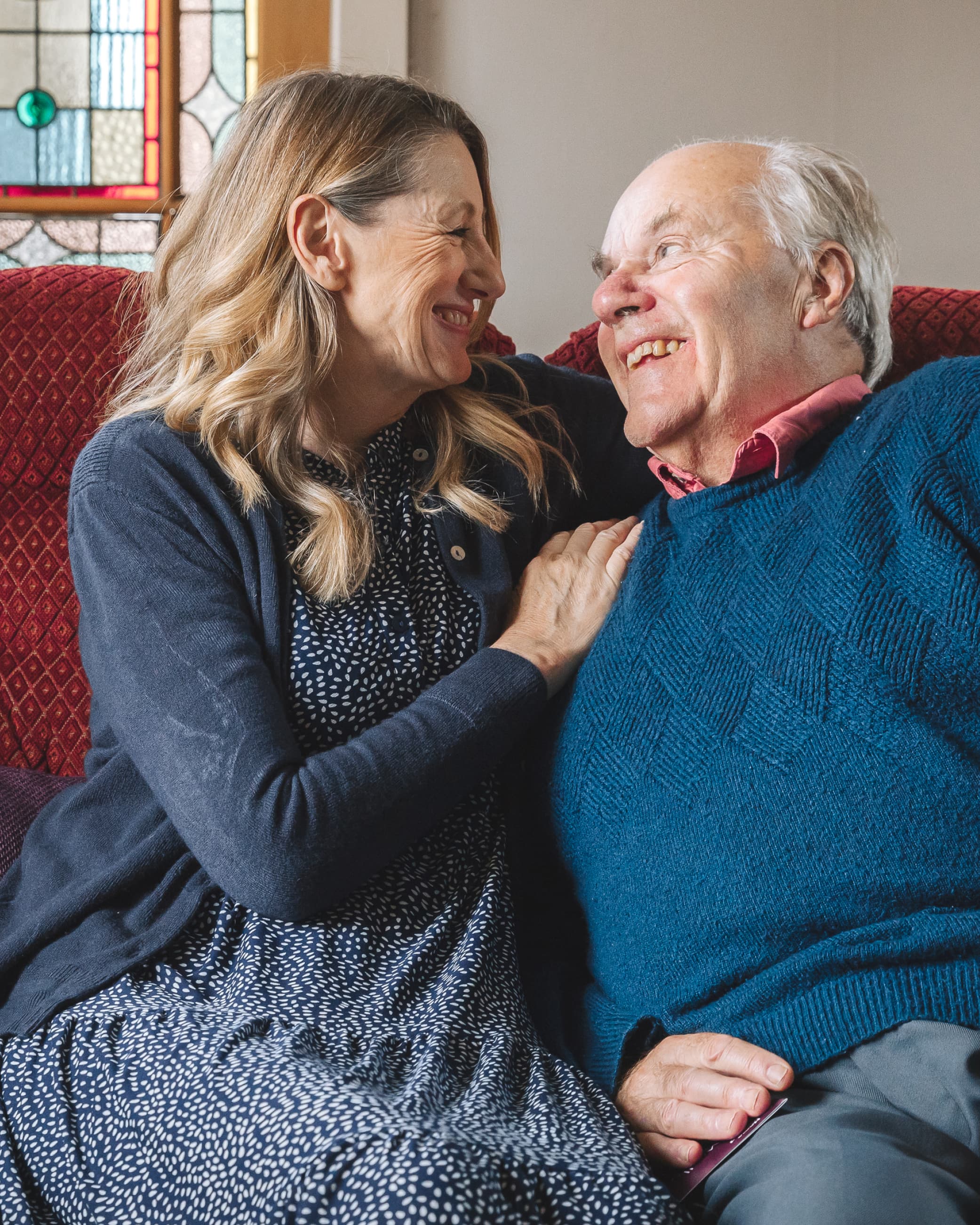Mental Health Awareness Week

In honour of Mental Health Awareness Week the 12th-18th May we’re looking at how we can support the mental wellbeing of older adults.
Mental health is important at every stage of life. As our parents and loved ones age, it can become even more vital to recognise the signs of mental distress and offer meaningful support. Older adults may face unique challenges, including isolation, physical decline, and memory issues. These can all contribute to deteriorating mental health, especially in the context of dementia.
In this article, we share practical advice from Mental Health UK on how to spot the signs of poor mental health in older adults, and how to support them with empathy and understanding.
Understanding Mental Health in Later Life
Mental health affects how we think, feel, and act. For older adults, life transitions such as retirement, bereavement, chronic illness, or the onset of cognitive changes can trigger emotional distress.
Dementia, including Alzheimer’s Disease, and other cognitive impairments not only impact memory and thinking, but also has a significant emotional toll, often increasing anxiety, confusion, and depression.
Recognising the Signs in Older Adults
Mental health issues in older people may be overlooked or mistaken for “normal ageing,” but there are key signs to watch for:
Physical Symptoms
- Unexplained aches and pains
- Sleep disturbances (especially common in those with dementia)
- Slowed movement or fatigue
- Weight loss or changes in appetite
- Increased confusion, particularly in the evening (known as “sundowning” in dementia)
Behavioural and Cognitive Symptoms
- Forgetfulness or repeating themselves frequently
- Getting lost in familiar places
- Withdrawing from activities or hobbies they once enjoyed
- Irritability, aggression, or uncharacteristic behaviours
- Difficulty concentrating or making decisions
- Paranoia or confusion about time and place
Emotional Symptoms
- Persistent sadness or tearfulness
- Increased anxiety or fearfulness
- Feeling hopeless or worthless
- Sudden mood swings or emotional outbursts
- Delusions or hallucinations (especially in advanced dementia)
Having a Supportive Conversation with an Ageing Parent
Starting a conversation about mental health, especially with an older loved one, can feel daunting. Here’s how to do it with sensitivity:
Dos:
- Choose the right moment: Pick a quiet time, perhaps during a calm activity like a walk or a cup of tea.
- Speak slowly and clearly: Cognitive issues can affect processing, so avoid rushing.
- Use familiar language: Avoid jargon. Phrases like “Are you feeling more tired than usual?” may be better than “Are you depressed?”
- Be patient: Allow for pauses or repetition. Some older people may need more time to express themselves, but wait for them do to so.
- Show understanding: Say, “It’s okay to feel overwhelmed,” or “That must be difficult for you.”
Don’ts:
- Don’t dismiss forgetfulness: It might be more than ageing. Memory changes could be early signs of dementia.
- Don’t argue or correct too firmly: For those with dementia, this can create distress. Instead, gently redirect or reassure.
- Don’t overwhelm them with choices or questions: Keep it simple and supportive.
When Dementia Is Involved
Dementia is not just about memory loss. It affects mood, judgment, and communication. People with dementia are at higher risk of depression and anxiety, but these symptoms are often underdiagnosed. Look out for:
- Withdrawal from social interaction
- Increased confusion or agitation
- Signs of frustration or helplessness
- Not looking after personal hygiene and their home
These emotional changes can often be eased through routine, reassurance, and familiar surroundings. Professional input from GPs or memory clinics is also key.
Where to Find Help
If you or someone you care for is struggling, support is available:
- Mental Health UK
Learn about mental health in older adults and access helpful guides and support networks.
mentalhealth-uk.org - Alzheimer’s Society
Provides tailored support for people living with dementia and their carers.
alzheimers.org.uk - Hub of Hope
A UK-wide database that connects people to local mental health services.
hubofhope.co.uk - GP or Memory Services
Encourage your loved one to see their GP. Ask for a memory assessment if you notice cognitive changes.
You Don’t Need to Be an Expert
Just being there, listening without judgment, and offering gentle reassurance can make all the difference. For older people, especially those affected by dementia, human connection is often the most powerful medicine.